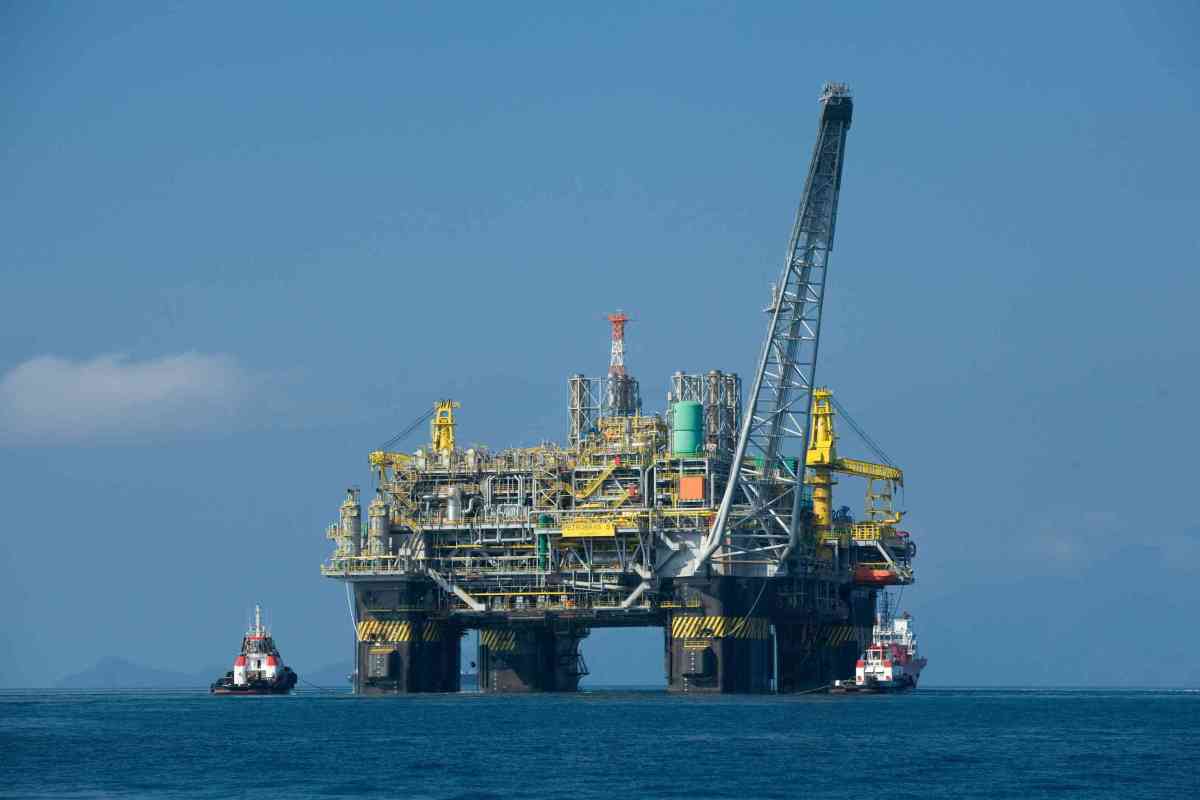Today on Twitter, I saw the most interesting tweet that caused me to think which was in my opinion true to a certain extent and also partly irrelevant. Someone said that if Africa could trade among themselves and use their own currencies they could surpass the US and Europe. Potentially, if Africa got their act together, they could have double the GDP of Europe and America, including the climate issues and uninhabitable land. They could also have the potential to sustain themselves and have a closed economy due to the huge natural resources Africa still has, although commodities such as Oil could be rendered useless if nuclear energy development goes into full throttle. One could say that oil is a bargaining tool for Europe and the US when dealing with the Middle East since many countries depend on Oil as their primary export (Saudi Arabia),
I’m going to post an article which will clarify the issue which answered a Question on why Africa was so poor.
“This is a very complex and misunderstood topic. Before answering, it is important to note that “Africa” is not a political or economic entity, and therefore addressing this issue must be done on a nation-by-nation basis. In fact, some African countries such as South Africa, Kenya, and to some extent Morocco and Egypt have relatively high standards of living. The question is also posed poorly, as Africa as a whole does not contain an even spread of gold and diamond resources, and often nations have additional resources or less (such as oil in Nigeria but desert in Chad).
Effects on most African nations’ wealth include, among other things, (1) residual effects of colonialism, (2) current exploitation of poor nations by wealthy nations, (3) a pervading lack of strong political institutions to manage the economy, and (4) Western ignorance in their interventionist strategies such as the International Monetary Fund (IMF) and World Bank.
Colonialism forced African people into regimented and incredibly foreign manners of government. Warring tribes were often “placed” in the same nation while other tribes were split by these artificial boundaries. Also, colonizers placed certain tribes in positions of power which has caused uprisings in areas such as Rwanda.
Pertaining to the question about natural resources, these are often extracted by wealthy nations, who take the wealth from those resources back to their already wealthy countries. This has been the case in oil-rich Nigeria and diamond-rich South Africa. Wealthy nations also often trade extraction rights for vast amounts of extorted “dirty money”.
Historically, the world has not seen a well-developed economy without a corresponding strong government. In contrast to a Western-style political institution of checks and balances, traditionally African tribes were not organized in such a way. Many argue that in addition to easy access to education, healthcare, and natural resources, a strong government that can balance its own power by virtue of the bureaucratic structure of itself is essential.
Lastly, the IMF, World Bank, and other international aid organizations have created massive problems by failing to understand the social and political contexts of the African countries within which they work. They lend money to nations, henceforth focusing on repayment of the loan, rather than the efficacious use of that loan. They require structural changes in the government that detrimentally weaken the local and federal governments. Furthermore, aid organizations normally focus on distributing birth control and food, which benevolently helps the people, but it ameliorates the symptoms without tackling the sickness, such as establishing and funding schools or citizen advocate groups.”
Read more: http://wiki.answers.com/Q/Why_is_Africa_so_poor_despite_its_gold_and_diamond_resources#ixzz23TOxd0F9
Who is to say that Africa may have been more advanced than European countries, usually one country is more advanced than the other in a majority of different categories which means that they cannot be equal on economic, technological and military terms which offer a strategic and tactical advantage in a geopolitical landscape; A classic case would be the British Empire and the Industrial Revolution. The point I’m trying to make is that Africa had to adjust to the way the world was changing at that point of time which was clearly being dominated by European powers. So it isn’t a question of who was more advanced than the other country, it was more of a game of keep up or get lost. I’m not saying Africa was never in the lead concerning the advancements of an individual country which apparently influenced European countries which were most likely Mediterranean European countries because an example of this would be Egypt which was a superpower in its time around 5000 BC. All I’m saying is that Africa was overtaken and left in a bad position.
Now, this person then went on to say that Africa had the potential to outweigh the United States in terms of Currency and that the West was crumbling. I thought to myself and agreed that the West’s dominance was under fire but far from crumbling. The only thing that could bring everything down was the Euro Crisis which would cause irreversible damage to Europe and the rest of the World, it would be a catastrophe. Considering the fact that foreign governments buys the U.S. dollar so that they can increase their own exports to America (China and Japan) means that a majority of countries depend on the U.S. to increase their GDP and make money, especially countries with a low exchange rate such as China and Japan. This gives the U.S. political leverage which is unmatched throughout the world, it also means that they can crush foreign countries by switching to the Gold Standard which would immediately revive a weak dollar and considering that the U.S. has the most Gold in the world what else is there that needs to be said in this situation. With all the issues Africa as a continent have, it is just not possible for them to immediately overtake the U.S., we all saw what happened to Gaddafi when he tried to introduce the Gold Dinar into Libya. As a superpower, the U.S.’s influence is uncontested and they can remove anyone from power if they please although their adventurous military expenditures has begun to take its toll on the U.S. as well as the UK. One could say that the US is experiencing capital flight transferring to the Eastern countries which puts companies such as Apple in a favorable position since they can hire workers far cheaper than they can back at home. Another point would be President Obama racking up an amazing bill of $5.1 trillion dollars for taxpayers to pay.
If this wasn’t happening then it would be likely that we wouldn’t be experiencing any sort of debt crisis at this point in time; some may call it a conspiracy to undermine local trade unions and citizens overall social power and seize control which was something that is occurring in Western Countries such as the UK and the US. The US Dollar is the Global Reserve for a reason, if the currency was to suddenly fall then there would be a worldwide collapse something which America may not be able to recover from due to a number of reasons, notably because of a lack of resources, but this can be obviously prevented by putting a cap on Quantitative Easing and sorting out their finances. The UK doesn’t have this problem as of now but are quickly falling into the debt trap and are trying to reduce it with Austerity. As we speak, the UK still has its triple AAA rating due to the fact that it’s in the country that’s in the best position to repay its debts and grow and is one of the countries taking action to sort out their finances, however instead of growing the Coalition Government has decided to cut the Budget Deficit and try to live within Britain’s means, this financial policy has not been working well because the Coalition estimate that borrowing costs will not go down until 2016 instead of 2013-2014. This is encouraging but a death wish for a Capitalist country since a Capitalist country must borrow in order to pay for projects such as infrastructure and education, additionally it needs to provide a way to pay for increasing pension liabilities and the heavy burden of welfare; Austerity is nothing but a Conservative scheme which means that it effectively kills growth instead of encouraging it. Although there are scenarios which may provide an opportunity to encourage growth, it is highly unlikely since that such a thing needs investment. It is widely accepted that the Euro-zone should undergo bailouts and austerity to lessen the effects of the debt crisis and that the United Kingdom must cut its budget slowly in order to survive, however it has also been said that the Coalition need deeper cuts and the NHS has to be drastically re-structured, increased in scale and be much more efficient. However, the cuts the UK is experiencing is too deep and too fast which will trigger a lost decade when the UK could have had a big advantage in the global economy. My opinion is that Britain will continue to be able to import goods but will have difficulty exporting goods since many of Britain’s industrial capabilities has been sold off and that it doesn’t have enough companies that are large enough to export their commodities or products to other nations, one might call these companies or coin the term “Hidden Champions“.
There was a time when Britain was called the workshop of the world in regards to its ability to manufacture goods to a large part of the globe, such a capability would be useful now although even this would be difficult to sustain. But now that European markets are no longer proven less lucrative, Britain must now seek new trade relationships with countries like Russia, Norway, Brazil and other emerging nations which would put Britain in a good position. Theoretically, if the pound was to get weaker; it would be more competitive and more investors would buy the pound. Quantitative Easing would only help the situation, and it’s times like this that Britain should become a dynamic economy capable of adjusting quickly and stop relying on the profits that London brings in.
I would like to include another article which would bring a different light into what the situation of the U.S. economy is about.
The Falling Value of the US Dollar
What does it mean that the U.S. dollar is “falling”? Falling from where?
No, dollar bills aren’t dropping out of the sky — although that would be pretty cool. It means that any money you have is falling in value compared with the money used by other countries. A bit of math might help explain this. Let’s use Canada as an example, since lots of Americans go on vacation there. A year ago, if you traded 10 U.S. dollars for Canadian money, you would have received 14 Canadian dollars in return. Today, 10 U.S. dollars would get you about 10 Canadian dollars.
Who decides what the dollar is worth? How do they do it? Dollars are traded on markets the same way that football cards are swapped on the playground. Most children who collect football cards want at least one of Ronaldinho because the Brazilian is one of the world’s most famous footballers. But what if Ronaldinho started to play badly and couldn’t score goals any more? The other kids at school might feel that his card was worth less and want to trade it for one they thought was more valuable.
That is what’s happening to the dollar. People are worried that the U.S. economy is in a slump. So they don’t want U.S. dollars as much as they once did. They are trading them for other countries’ money, and that makes the dollar less valuable.
Just how bad is it for the dollar? It’s pretty bad. The value of the U.S. dollar has hit an all-time low compared with the euro, the official money of 13 European countries. And, for the first time in 31 years, Canada’s dollar is about equal to the U.S. dollar.
Is the falling dollar bad for America’s economy? Yes and no. Staying with Canada as our example, the falling U.S. dollar means that if you go there on vacation and want to buy a souvenir — a beaded belt, perhaps — it might cost you 10 U.S. dollars instead of $7 if you had bought it a year ago. In that way, the falling U.S. dollar hurts American travellers and people who buy goods from other countries. Toys made overseas and sold here could cost more this holiday season.
But people coming from Europe or other countries will find that American goods are now less expensive for them to buy. More of them will visit Disney World and other U.S. tourist attractions , spending money in American hotels and restaurants. U.S. farmers will sell more food to other countries and American factories will sell more cars and other goods overseas.
Eventually this will improve the economy and help the dollar rise in value again.
I’ve merely touched the surface on this topic and I believe that it goes a lot deeper then this, but I would like to talk more on this subject another time, I’m tired now 😦






